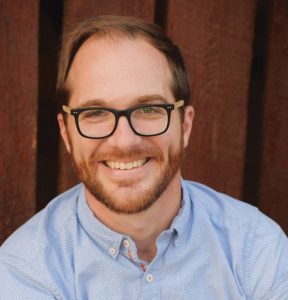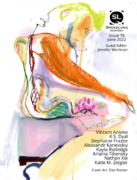You capture an archetypal father-son scene that reminded me of both the economy and emotional sting of Cheever’s “Reunion.” In your story and in Cheever’s, the tension stirs in the unsaid. With stories that use such potent subtext, I always wonder about process. Was this a longer story at one time? Did you cut much from earlier drafts? What did you need to know first to get this story so sharp?
This story was never much longer than what you see. I was surprised at how fluidly it came together.
But I’ve explored this particular father-son relationship through many different versions of many different stories, so the foundation for this one had been laid through those swings and misses. What I learned from that process—what I needed to know to write this story—was how the father understands himself in relation to his son. Does he view himself an actual father? Does he feel comfortable exercising the responsibilities of one? Does he feel shame and how might that shame twist their relationship? I certainly don’t know those answers fully, but I’m closer now than ever.
What you do include are so many stunning details of setting. John Gardner famously talked about how description can indirectly reveal a character’s perspective and emotional state. Could you talk about your approach to setting descriptions?
You know, I don’t really think of it too much. Every story needs a world and, in reference to your first question, that world seems to spring naturally from knowing my characters and the action that might happen between them. Not that the characters create the physical realities of the world, but like your Gardner paraphrase, they recreate that world for the reader through their joy, their anxiety, their unique sense of self. Once I know my perspective, the description seems to take care of itself.
I never feel the heavy hand of a writer pushing symbolism in your story, yet each detail seems weighted with significance. How do you feel about symbolism in flash fiction and in your story specifically?
Symbolism feels unavoidable in flash fiction. Our brains are always filling in for information we don’t have. Take a six-thousand-word story, for example. That’s a lot of words. A lot of space to fill in blanks for the reader. Flash fiction’s one thousand words, not so much. I’m not saying that longer tracts, even novels, can’t be deeply symbolic. We can collectively point to a hundred writers whose work is consistently and urgently pointing elsewhere. That said, longer pieces have the option of avoiding that feel if they’d like. Flash fiction gives us a pinhole glimpse into some world and, when we like the story, we can’t help but build out the rest of that world and enmesh it within our own by connecting it to other parts of our lives.
My story is probably no different. There is some serious baggage, which cannot be fully unpacked, between father and son. This pressure leaks out through certain escape valves that you might call symbolism. The freeway, the park, the wall separating them, the Russians, the Orthodox boys, the horse nonsense, all of that comes to mean something because we can’t even begin to talk about the thing we actually want to talk about.
I found your opening quite a striking start. It grounds so generously while signaling so much of what’s at the heart here. What’s your approach to titles and how they interact with first lines?
Unless I’m struck with something I can’t ignore, I save titles for last. And I don’t always come up with good ones. As much as I want to say that it’s what’s beneath the title that matters, I recognize that oftentimes the only thing people remember about a story is the title. That and some vague idea of what they thought of the story—which is probably inflected by the title. So I treat titles seriously. I don’t think about the interaction between them and first lines, though. As the old chestnut goes, first lines should hook the reader. That’ s my goal. So that you’ll read the next line and the one after that and the one after that. This means setting a scene or revealing some stakes or inducing some sort of emotion.
You’re a fellow Michigander. Your bio also notes you’re from Ukraine. Could you share what it means for you to be a Ukrainian writer during these impossibly challenging times?
Though I was born in Kiev, I’ve always identified as Russian. Partly because, if asked, it was always easier to say I was Russian than explain where and what Ukraine is. But also because my family has always identified with Russian culture—we speak Russian, have always watched Russian television and eaten Russian cuisine, danced to Russian ballads. I recognize and respect that many Ukrainians weren’t raised this way. The cultures are knotted together by history and blood, which is what makes this so confusing and heartbreaking. On top of that, my family is Jewish. This adds another layer of identity and some very mixed feelings about Ukraine and Ukrainians. Many countries have histories of anti-Semitism, but Ukraine’s is ours to contend with.
I’ve long been writing about the immigrant experience. Lately, I’ve found it hard. Maybe because of some guilt and impotence; I still have family there. Or maybe because I’ve started taking my responsibility as a writer more seriously. The war is upending lives and decimating cities—that part is simple and terrifying. The history of the region, though, is not simple. There are competing allegiances and belief systems that can overlap. And then there’s the diaspora, flung across continents and timelines. My job, as I see it, is to write honestly from my experience and hope that I add a few valuable voices to the complex chorus of Ukrainian identity.




 The SmokeLong Grand Micro Contest (The Mikey) is now an annual competition celebrating and compensating the best micro fiction and nonfiction online.
The SmokeLong Grand Micro Contest (The Mikey) is now an annual competition celebrating and compensating the best micro fiction and nonfiction online.